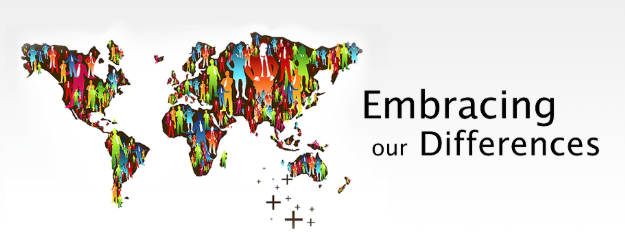Student Differences
"Unity, not uniformity, must be our aim. We attain unity only through variety. Differences must be integrated, not annihilated, not absorbed." - Mary Parker Follett
"Fair does not mean equal."
"Fair does not mean equal."
Age-Level Differences: While it may not be rocket science, it is important to recognize that different age groups learn and express themselves differently.
Preschool & Kindergarten: Physical, regularly display emotions, aware of their own mental activity but overestimate how well they perform tasks
Primary Grades: Increase in emotional sensitivity (react strongly to praise/criticism), recognize that facts are better support for ideas than theories, overestimate their physical abilities
Elementary Grades: Peers can strongly influence each others behavior, self-image becomes more stable, more logical thought but still limited in ability to think abstractly
Middle School: Kids greatly affected by peers, understand why they behave the way they do, have intense emotional lives, self-efficacy (belief in own ability) stabilizes - need an open, supportive and stimulating classroom
High School: Rapid physical growth, long range goals affected by parents as well as peers, mental illness commonly presents itself, increasingly able to think abstractly
*Key - Get to know your students! Know what questions they are thinking, what they are worried about, what their goals are*
Preschool & Kindergarten: Physical, regularly display emotions, aware of their own mental activity but overestimate how well they perform tasks
Primary Grades: Increase in emotional sensitivity (react strongly to praise/criticism), recognize that facts are better support for ideas than theories, overestimate their physical abilities
Elementary Grades: Peers can strongly influence each others behavior, self-image becomes more stable, more logical thought but still limited in ability to think abstractly
Middle School: Kids greatly affected by peers, understand why they behave the way they do, have intense emotional lives, self-efficacy (belief in own ability) stabilizes - need an open, supportive and stimulating classroom
High School: Rapid physical growth, long range goals affected by parents as well as peers, mental illness commonly presents itself, increasingly able to think abstractly
*Key - Get to know your students! Know what questions they are thinking, what they are worried about, what their goals are*
Multiple Forms of Intelligence:
Old School: IQ
New School: Weschler - Intelligence is the global capacity to interact and deal with the environment.
Sternberg - Intelligence is practical, creative and analytical
Both theories point to the idea defined by Gardner - that intelligence comes in many forms!
Old School: IQ
New School: Weschler - Intelligence is the global capacity to interact and deal with the environment.
Sternberg - Intelligence is practical, creative and analytical
Both theories point to the idea defined by Gardner - that intelligence comes in many forms!
Multiple Intelligences in the Classroom
*Key! As mentioned in the video - if students learn different ways, teachers need to teach different ways!*
Different approaches to instruction: Bloom's Taxonomy & Writing Objectives
It helps to know what type of teaching styles work and work for you to start with. And even then, to be a successful teacher it is helpful to reflect on what works, and what doesn't work! Be able to adapt and be reflective!
*Key! As mentioned in the video - if students learn different ways, teachers need to teach different ways!*
Different approaches to instruction: Bloom's Taxonomy & Writing Objectives
It helps to know what type of teaching styles work and work for you to start with. And even then, to be a successful teacher it is helpful to reflect on what works, and what doesn't work! Be able to adapt and be reflective!
Special Education:
First, understand what is required. Special education is in place to ensure Fair and Appropriate Public Education for all and it is taken seriously! Know your students and be familiar with some of the terminology used in special education.
Next, be able to accommodate and modify your lessons to give all your students a fair and appropriate education (does not always mean equal!).
First, understand what is required. Special education is in place to ensure Fair and Appropriate Public Education for all and it is taken seriously! Know your students and be familiar with some of the terminology used in special education.
Next, be able to accommodate and modify your lessons to give all your students a fair and appropriate education (does not always mean equal!).

